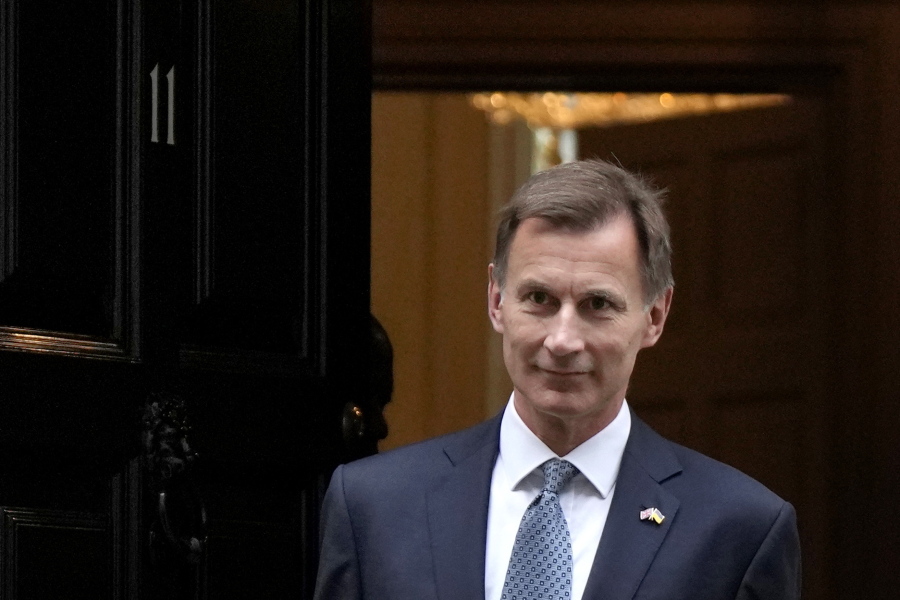LONDON — Millions of people across Britain face higher taxes and energy bills after the government on Thursday announced an emergency budget focused on restoring the country’s financial credibility and bolstering an economy battered by soaring inflation.
Treasury chief Jeremy Hunt unveiled a $65 billion package of tax increases and spending cuts designed to demonstrate that Britain is committed to paying its bills after his predecessor spooked financial markets by proposing tax cuts without saying how they would be paid for.
Hunt sought to cushion the blow by pledging to protect the most vulnerable, announcing that he would increase welfare benefits and state pension payments in line with inflation and help low-income residents with their energy bills. The government will also maintain investment in energy and infrastructure projects to boost economic growth, he said.
Even so, the government’s fiscal watchdog warned that Britons face a painful 7 percent fall in living standards over the next two years.



